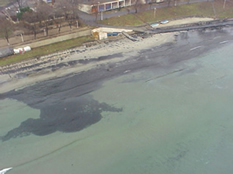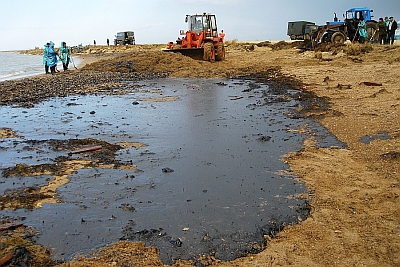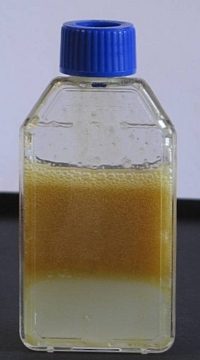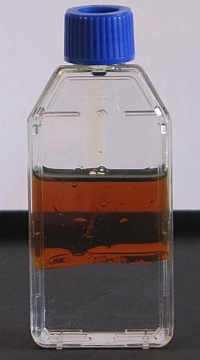Supplement 2.5: Weathering of Oil on the Water Surface (2/4)
- Physical Processes -
4. Sinking / Sedimentation

Most oils have a density less than that of sea water (see drop down box below). Therefore they don't tend to sink. However, sinking occurs due to the adhesion of particles of sediment or organic matter to the oil. Especially in shallow coastal waters solid particles, such as sand or algae, are abundant providing favourable conditions for sedimentation. Oil that has been washed on the shorelines often becomes mixed with sand. If this mixture is subsequently washed off the beach and back into the sea its density is large enough for it to sink.
5. Dissolution
The rate and extent to which an oil dissolves in sea water depends upon its composition, spreading, water temperature, turbulence and degree of dispersion. The heavy components of crude oil are virtually insoluble in sea water whereas lighter compounds are slightly soluble. However these compounds are lost rapidly through evaporation. So dissolution does not make an important contribution to the oil left on the sea surface after a spill.



